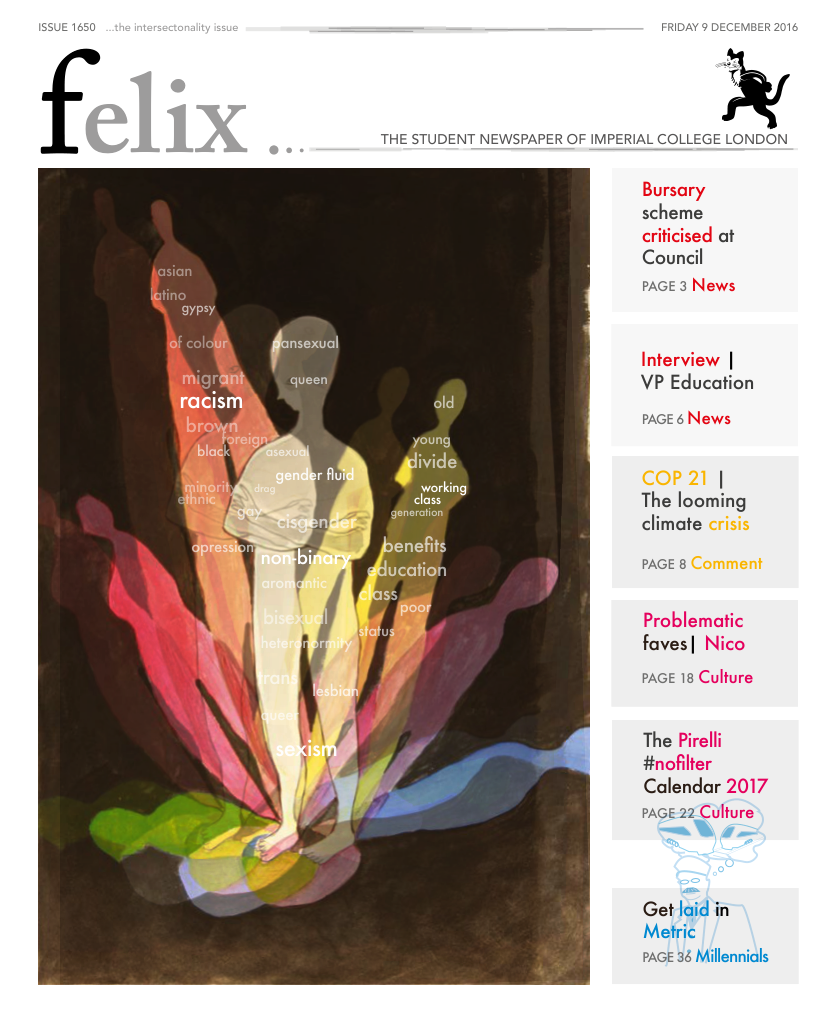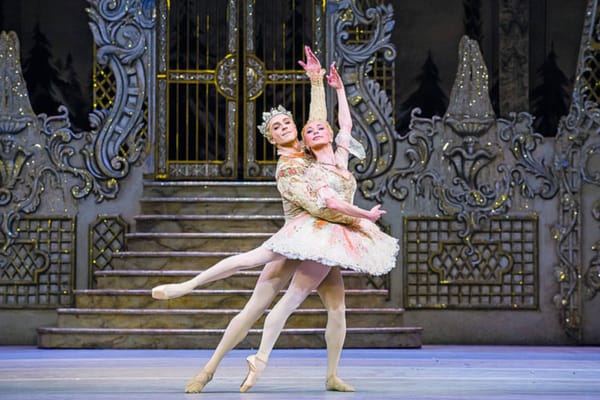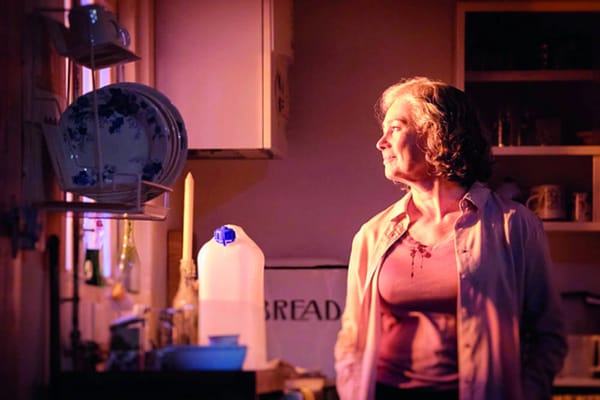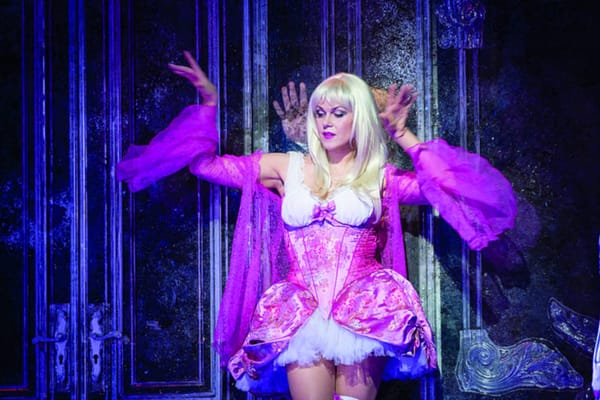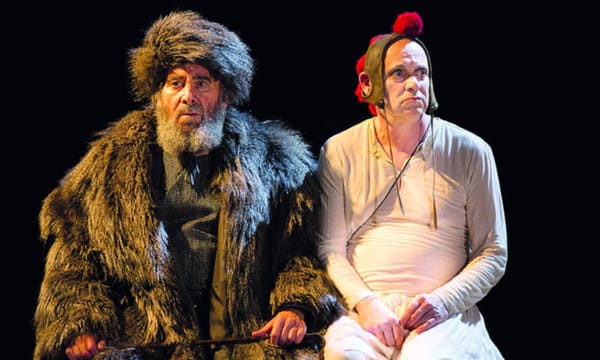The Duke | Innovative political theatre
The Duke is on at the Jerwood Theatre (Royal Court Theatre) until the 14th of February 2017
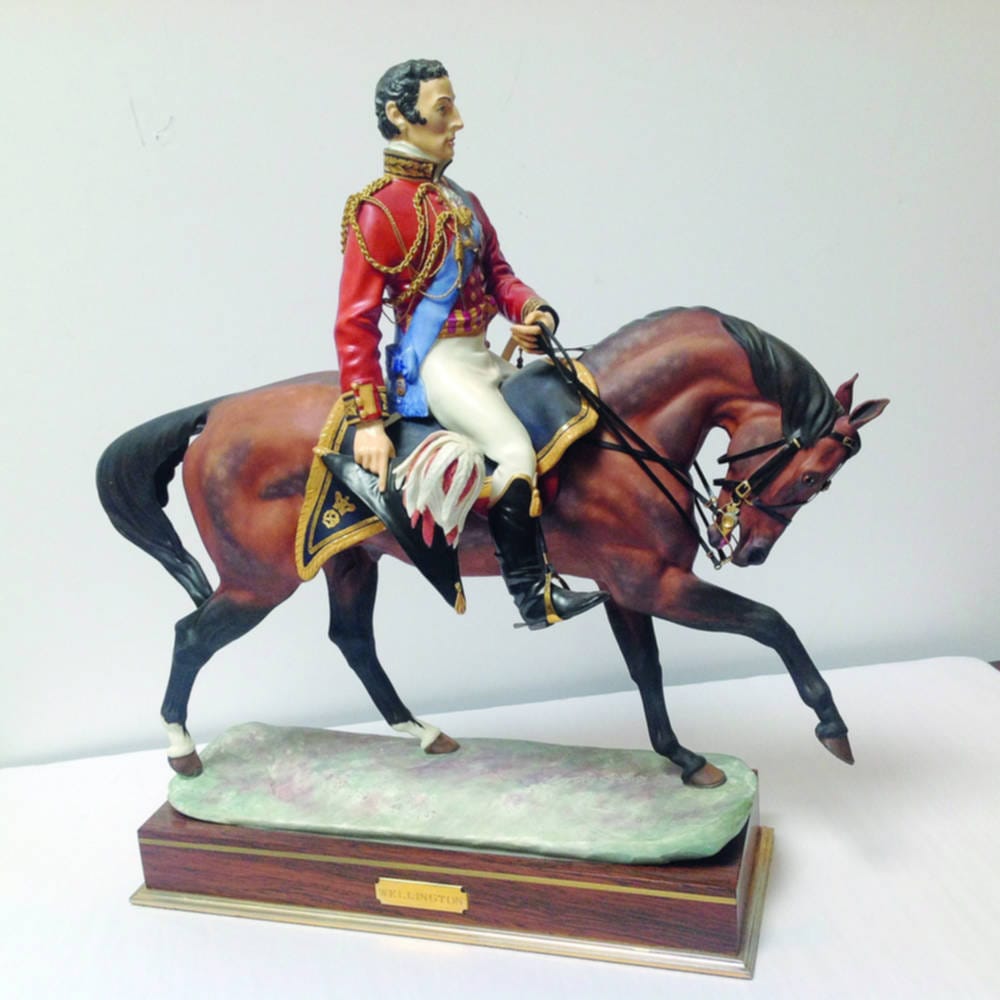
Shôn Dale-Jones’ The Duke is about what we are willing to pay for the things we treasure. What is the value of a collectible piece of porcelain, of a script you’ve been working on for ten years, of a seat on a boat that is as likely to plunge you into the sea as to deliver you to safety? In the one-hour, one man show, Dale-Jones explores these issues, both personal and global, with humour, empathy, and considerable power.
Dale-Jones greets each audience member as they arrive at the relatively small venue of Jerwood Theatre Upstairs with a handshake and a word of thanks, when everyone has taken their seat, he takes his own place at a desk set up on stage. In The Royal Court, the desk is at the front of a timber box, not his own set, Dale-Jones tells the audience, but that of the show that will be following him; it is this spirit of frugality of staging, this camp-fire story vibe that characterises the rest of the performance. Dale-Jones voices all his characters of which there are few; himself, his mother, his script writing instructor, as well some others who appear fleetingly in the retelling. From a laptop, he also adds a soundtrack; a fun mix of pop music that sets the scene, as well as a dramatic score for a the more tense moments of the story.
‘The Duke’ Dale-Jones tells us, refers to a 'Royal Worcester limited edition porcelain figure of the Duke of Wellington on horseback', one of a set of four, a figurine that was bought by his late father as an investment at a sum of £750 (over £8000 in today’s money), when Dale-Jones was young.The Duke remained bound in sponge under the bed, the focus of father-son bonding throughout Dale-Jones’ childhood.This is the background, the audience are told. The story proper follows that of Dale-Jones deciding whether to make crucial changes to a script that he has been working on for a decade – changes that would offer a chance to get it turned into a film. The changes demanded are outlandish; Anglesey must become Manhattan, the principal character must change all of their distinguishing features, and the script should heavily feature Audi TT coupes. In the midst of this, a phone-call arrives from his ageing mother in which she admits to accidentally breaking The Duke. Thus begins a tale recounting the recovery of The Duke of Wellington, Dale-Jones’ realisation of how treasured his time with his mother has become now he sees that it is limited.
“I am no longer able to see the world I once did," admits Dale-Jones at the beginning of the performance. The audience is sombre, none of us can. Throughout the retelling of The Duke, new reports of Syrian refugees haunt Dale-Jones as he waits for an work email, he hears of several families drowning off the Greek coast, and thinks of how much they must've paid for a chance to get on the boat in the first place: their entire life savings perhaps, at one point he encounters a young refugee mother, and is lost as to how to reply when she tells him she does not know whether her husband is alive or dead. In one of the most emotional scenes, at the end, he watches his elderly mother who has joined a rowing club, get into a boat – a moment of empowerment for her – and thinks of all the mothers for whom the action is not a matter of staving off loneliness, but of life and death.
The story, simple at its core, has fantastical flourishes. Dale-Jones explains these with a Louis Buñuel quote at the start of the performance: "Fantasy and reality are equally personal, and equally felt, so their confusion is only a matter of relative importance." In this spirit, imagination and truth are blended in the retelling of Dale-Jones’ accounts; some details are far fetched, but each new twist is told with such clarity, such earnestness, that it doesn’t matter, it is indistinguishable from what may actually have happened.
The Duke is a tour de force performance, revealing Dale-Jones as a consummate storyteller, able to conjure up scenes and characters out of thin air before the audience’s eyes. He is persuasive too; the need to urgently do something about the crises the world finds itself in is made clear; but Dale-Jones isn’t lecturing from the top of his “liberal elite” ivory tower; tickets to The Duke are free, after the performance, collection buckets for Save the Children are handed around. The Duke is about the worth of things; objects, experiences, it shows us the worth of art – the power it has to spin something out of nothing and create real change in the world. Real charity, Dale-Jones tells the audience is "when it hurts just a bit." Dale-Jones could've charged market price for the tickets and donated his earnings, instead he uses The Duke to ask each audience member personally: what are you willing to pay for chance to make the a world a little bit better?

